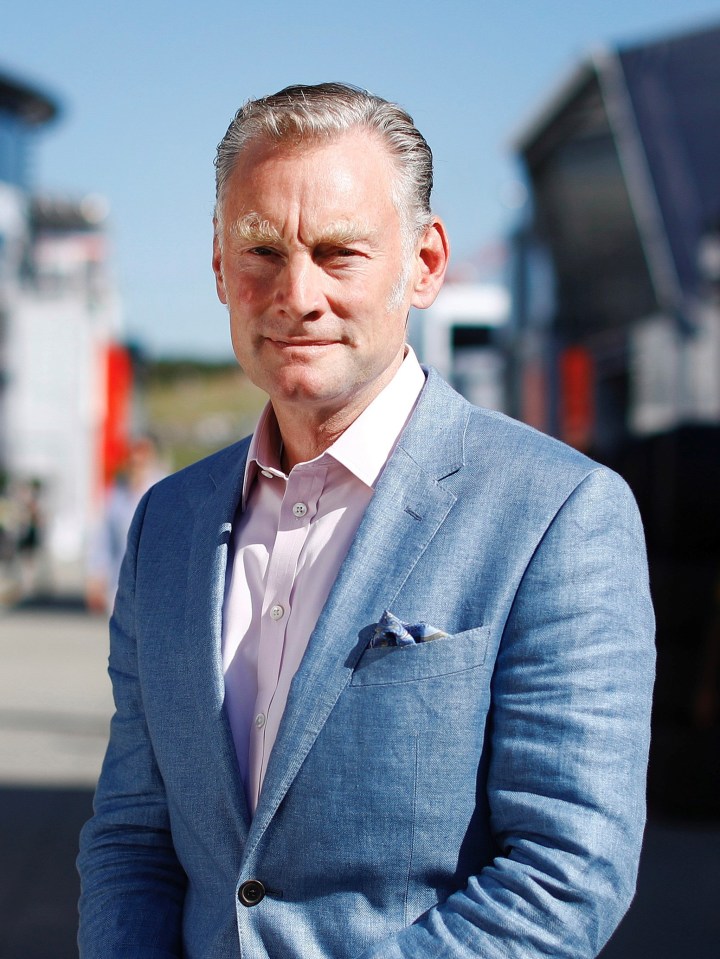Inside the Super Golf League: Sean Bratches on LIV Golf’s mission to redesign the sport

It was at the Ryder Cup in Wisconsin six months ago that Sean Bratches accepted Greg Norman’s invitation to join LIV Golf Investments, the vehicle behind long-rumoured plans for a Super Golf League.
Former ESPN and Formula 1 executive Bratches had already been working with world No1 turned LIV Golf CEO Norman and the Saudi-backed company on the project since early last year in his capacity as a consultant with McKinsey.
Against the backdrop of one of golf’s most historic events, Bratches went all in with Norman and his mission to redesign the sport’s future.
“I was working on this deal for four months there and then they hired Greg Norman,” Bratches tells City A.M. “He started jumping on calls and the next thing you know Greg and I are at the Ryder Cup cutting a deal for me to join him.”
Norman may be the face of LIV Golf but it’s easy to see why he wanted Bratches behind the scenes to plan the biggest changes to the professional game in generations.
Bratches was credited with a key role in turning ESPN into a global powerhouse before moving to Formula 1 following Liberty Media’s acquisition in 2017.
As F1 commercial chief, he dragged an organisation previously reliant on Bernie Ecclestone’s deal-making into the 21st century and established a vibrant digital media operation that has reinvigorated the sport.
“One of the reasons that I’m here is to do what I did at F1,” says Bratches, who formally started as LIV Golf’s chief commercial officer in November.
“ESPN was a start-up. I always looked at Formula 1 as something between a start-up and a business turnaround. Getting this going from the beginning has been fascinating.”
LIV Golf is another start-up, says Bratches, who sees its challenge as reversing trends that pose an existential threat to the sport: declining TV ratings, an ageing fanbase and professionals who, in the main, earn less than their peers in some other sports.
Why LIV Golf’s new series is first step to Super Golf League
Last week, after months of speculation, the world finally got to see what Bratches and Norman had been working on when the inaugural LIV Golf Invitational Series – the first iteration of what will become the Super Golf League – was announced.
The $255m prize money being dangled at the game’s top players across eight new events, starting in June at Centurion Club in St Albans, is eye-popping but no surprise given that the venture is backed by Saudi Arabia’s Public Investment Fund (PIF), which became majority owners of Newcastle United in October.
More intriguing are the critical changes to golf’s traditional format that LIV Golf believes will make the series more appealing to players, fans, broadcasters and sponsors.
Tournaments will be played over three days instead of four, with smaller fields and no cut to ensure big names play throughout, and shotgun starts – whereby all players tee off at the same time at different holes – condensing the action into a four-hour spectacle.
On top of that – and, Norman has said, inspired by his one and only visit to the Ryder Cup last autumn – there is a team element. Players will be allocated via a draft to teams with their own distinct identities, with prizes on offer for the top teams at each event and the series culminating with a $50m match play tournament.
“We really believe that there is the opportunity to commercialise the sport in a fashion when you start engaging fans in new and innovative ways, changing the formats as it relates to television, changing it from an individual contributor to a team and for significant money,” says Bratches.
“We anticipate the viewing experience changing from more of a lean back to a lean forward, edge of the couch. There’s no cuts so your favourite players will be playing the entire weekend. So don’t blink.”
This year’s LIV Golf Invitational Series is just the start, however. After a couple of years of proving the concept works, organisers hope it will be ready to become the much talked-about Super Golf League, with promotion and relegation – potentially to and from the new series on the Asian Tour that LIV Golf has just established.
Bratches says a women’s league could follow, with the shotgun start format allowing them to play on the same courses as the men, only earlier in the day.

While a Super Golf League has been depicted as a rival to the dominance of the PGA Tour, LIV Golf’s plans are actually much more ambitious than that – a fundamental redrawing of what the elite game looks like – and Bratches talks about matching the reach of the “truly global” Olympics, World Cup and F1.
“Golf is a global game but there is no global league. We’re trying to tuck in with those other three as truly global sports that happen on multiple continents,” he says.
“Brands are going global. The friction from globalisation of brands doesn’t exist anymore and the way fans look at sports and the world is much more holistic. We think there’s an opportunity to play on a much broader field commercially.”
To that end, Bratches is working with London-based creative agency Wieden and Kennedy on team names, logos and mascots. He also insists that, for all the money that PIF is pumping in, LIV Golf does expect to become profitable.
“Nobody involved in this would be if the expectation wasn’t to make this a profitable endeavour – full stop,” he says. “It’s difficult to determine exactly when that will occur but we have a business plan that shows profits.”
Sentiment swinging in our favour, says Bratches
The Super Golf League talk has, of course, met with some fierce resistance within the sport, mostly from the PGA Tour and its European counterpart, now rebranded as the DP World Tour. Both circuits have threatened to ban any players who play in LIV Golf tournaments from their events and the Ryder Cup.
While some players, such as Lee Westwood and Ian Poulter, have entertained LIV Golf’s advances, others, such as Rory McIlroy and Jon Rahm, have publicly shunned them.
Multiple major winner Phil Mickelson, meanwhile, did the project no favours with crass comments that emerged last month about using it as leverage against the PGA Tour, despite saying he had concerns about Saudi Arabia’s human rights record.
While some declared the Super Golf League dead, Norman was quick to insist LIV Golf would play the long game. Bratches believes sentiment has swung back towards their plans, helped by last week’s announcement.
“We track that closely from a media standpoint and I’ve likened it to the movie Rocky, when the music starts playing and Rocky starts fighting back,” he says.
“We’re not running up against the majors or the tier one PGA Tour events. There are so many things that have come to clarity now that the narrative is starting to change. We always knew it would but you really can’t defend yourself if you haven’t announced what you’re doing.
“Players should have the opportunity to participate as independent contractors wherever and whenever an opportunity that suits their needs presents itself. Uber cannot prevent drivers also driving for Lyft and vice versa. That’s our sense on the overall marketplace.
“Any time you launch a new business the incumbent competes, and they do whatever they can to maintain their marketplace position. Ultimately the marketplace is going to determine the winners and the losers. We feel very good about our prospects in a competitive marketplace.”
